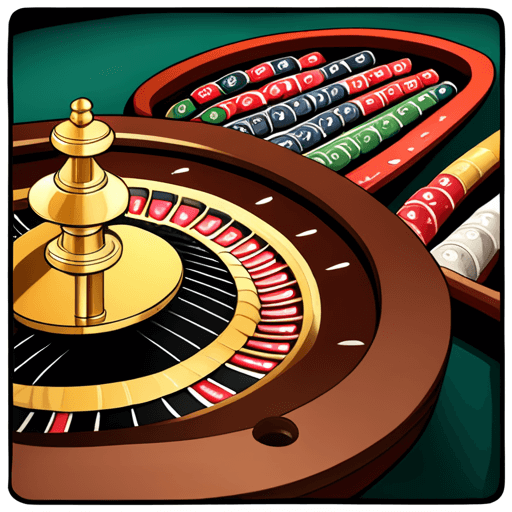It is the dream of every gambler to find an algorithm that will consistently guarantee success when playing roulette. Over the years, numerous attempts have been made by mathematicians, scientists, and gambling enthusiasts to develop a roulette prediction formula. In recent years, the search for an algorithm to win at roulette has intensified, thanks to the rise of live roulette sites and advances in computing power. In this article, we will delve into the world of roulette algorithms and explore notable attempts, their success rates, and their practical applications.
Roulette Prediction Algorithms: A Brief History
For the past three centuries, gamblers, scientists, and mathematicians have been attempting to find a way to predict roulette numbers. From complex algorithms to hacking devices, these individuals have worked tirelessly to develop a roulette prediction formula that would allow players to beat the machine. This ongoing struggle between players (David) and the casino (Goliath) remains as passionate and exciting as ever.
The Small-Tse Algorithm
One notable attempt at creating a roulette prediction algorithm came from Professor Michael Small of the University of Western Australia and Dr. Chi Kong Tse of the Hong Kong Polytechnic University. The two researchers believed that their skills and knowledge could be used to develop an algorithm to predict the outcomes of a roulette game and revolutionize the way people play roulette.
Based on their model of a roulette wheel, Small and Tse claimed that a roulette prediction system could be created by considering the initial position of the ball, the velocity of the spin, and the acceleration of the roulette wheel. The researchers provided a simple model for the motion of a roulette wheel and ball, demonstrating that knowledge of the initial position, velocity, and acceleration is sufficient to predict the outcome with adequate certainty.
Cross Validated's Roulette Predictor
Another interesting roulette prediction algorithm surfaced on the Cross Validated website, a platform dedicated to statistics, machine learning, data analysis, data mining, and data visualization. A member of the site developed a precise algorithm to win at roulette and asked the scientific community to evaluate the quality of his work.
However, the python code provided on the site contained a crucial mistake that would render any application based on it flawed. The code assumed that roulette wheels have only 36 numbers, thereby removing the house edge, while the reality is that European roulette games have a house edge of 2.7% and American roulette games have a house edge of 5.3%. Consequently, the algorithm published on Cross Validated does not accurately predict roulette numbers.
The Role of Pseudo-Random Number Generators (PRNGs) in Online Roulette
Online roulette games rely on Pseudo-Random Number Generators (PRNGs), which are based on an algorithm that generates a long stream of numbers through a series of complex computations. PRNGs help maintain the element of chance in online roulette games, making it difficult to develop a reliable algorithm that predicts outcomes.
The Martingale System and Its Limitations
A popular betting strategy among roulette players is the Martingale System, which involves doubling the bet size after each loss in an attempt to recover previous losses. While this system may work in the short term, it is ultimately flawed due to the independence of roulette spins and the presence of the house edge.
Moreover, the Martingale System requires a large bankroll and may lead to substantial losses in the long run. It is important for players to remember that there is no foolproof betting system that can guarantee consistent winnings in roulette.
Tips for Playing Roulette
While a perfect algorithm to win at roulette remains elusive, players can still improve their chances by employing certain strategies and techniques. Here are some tips to keep in mind when playing roulette:
Consider Combination Bets
Instead of placing inside bets that pay little, try combination bets. These bets allow you to wager on multiple numbers, usually two, three, four, five, or six. Combination bets can be placed on lines between numbers on a roulette table, such as on a corner touching four different numbers.
Avoid Expectations
Many gamblers fall into the trap of thinking that certain numbers are "due" to appear. However, each roulette spin is independent, and the odds of a particular outcome occurring remain the same regardless of previous events.
Manage Your Money
Bankroll management is crucial when playing roulette. While a roulette algorithm calculator can help determine your odds of winning and the expected amount to win, it cannot manage your money for you. It is essential to bet sensibly and be aware of your bankroll at all times. Beginners may want to start with low-stakes roulette, as it requires less money to bet.
The Future of Roulette Prediction
Though researchers like Small and Tse have made significant strides in developing algorithms to predict roulette outcomes, the complexity of their calculations and the limitations of current technology make it unlikely that a practical roulette prediction system will be available in the near future.
However, advancements in technology, such as Google Glass 2 or Microsoft Hololens, may one day enable the creation of live roulette prediction software that could eliminate the house edge.
Until then, players will have to rely on roulette strategies and practice to improve their chances of success in this exciting casino game.
Conclusion
The search for an algorithm to win at roulette has been an ongoing challenge for centuries, with numerous attempts made by mathematicians, scientists, and gamblers. While some progress has been made, a reliable and practical algorithm remains elusive.
In the meantime, players can focus on strategies, techniques, and bankroll management to improve their chances of success at the roulette table. As technology continues to advance, it remains to be seen whether a perfect algorithm for predicting roulette outcomes will ever be developed. Until then, roulette enthusiasts will have to rely on their skills, strategies, and a bit of luck to enjoy this classic casino game.

